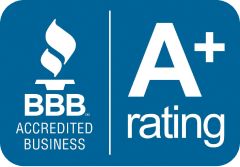
Medicare Secondary Payer:
The phrase “Medicare Secondary Payer” is commonly used, when the Medicare program does not have a main payment obligation – that is, when another organization pays before Medicare. Except for claims covered by Workers’ Compensation, Federal Black Lung compensation, and Veteran’s Administration (VA) benefits, Medicare was the principle payer for all claims when it first began in 1966.
In an effort to move expenditures from Medicare to suitable commercial sources of payment, Congress approved legislation in 1980 making Medicare the secondary payer for some main plans. The MSP rules have preserved the Medicare Trust Funds by guaranteeing that Medicare does not pay for commodities and services that are predominantly covered by other health insurance or coverage.
The MSP criteria apply when Medicare is not the beneficiary’s main health insurance. All businesses that charge Medicare for things or services delivered to Medicare beneficiaries must identify whether Medicare is the principal payer for such items or services, according to Medicare legislation and regulations.
Primary payers are those who are in charge of paying a claim in the first place. For beneficiaries who do not have other forms of health insurance or coverage, Medicare remains the principal payer. In other cases, Medicare is also the principal payer if certain circumstances are satisfied.
CMS has made a curriculum of computer-based training (CBT) courses accessible to help you learn the foundations of MSP. The MSP Curriculum paper is the first item on the list, and it provides a comprehensive list of courses, their descriptions, and durations.
Find Medicare Plans in 3 Easy Steps
We can help find the right Medicare plans for you today
Common Situations of Primary vs. Secondary Payer Responsibility
The list below lists some frequent scenarios in which Medicare and other health insurance or coverage may be present, as well as which organization will be the primary or secondary payer.
1. Employer Group Health Plan (GHP) and Working Aged (Medicare beneficiaries aged 65 and up):
- An individual is 65 or older, has a GHP through current or spouse’s current work, and the firm has less than 20 employees
- The primary payer is Medicare, while the secondary payer is GHP.
- An individual is 65 or older, has a GHP through current employment or spouse’s current work, AND the employer has 20 or more employees (or at least one business is a multi-employer group with 20 or more employees):
- Primary insurance is provided by GHP, while secondary insurance is provided by Medicare.
- An individual is 65 or older, self-employed, and covered by a GHP through current employment or spouse’s current job AND the employer employs 20 or more people (or at least one business is part of a multi-employer group that employs 20 or more people):
- GHP pays Primary, Medicare pays secondary
2. Employer GHP and Disability:
- An individual is handicapped, has a GHP through current work (or through a family member’s current job), and the employer employs 100 or more people (or at least one employer is a multi-employer organization with 100 or more employees)
- Primary insurance is provided by GHP, while secondary insurance is provided by Medicare.
3. End-Stage Renal Disease (ESRD):
- An individual has ESRD, is insured by a GHP, and is in the first 30 months of Medicare eligibility.
- During the 30-month coordination period for ESRD, GHP pays primary and Medicare pays secondary.
- An individual has ESRD, is covered by a COBRA plan under the Consolidated Omnibus Budget Reconciliation Act of 1985, and is in the first 30 months of Medicare eligibility or entitlement.
- During the 30-month coordination period for ESRD, COBRA pays primary and Medicare pays secondary.
For further information, go to the ESRD website.
4. The Consolidated Omnibus Budget Reconciliation Act of 1985 (COBRA) – a statute that allows employees and their families to keep their group health insurance if certain qualifying circumstances occur. Otherwise, the coverage would be canceled.
- An individual has ESRD, is covered by COBRA, and is in the first 30 months of Medicare eligibility.
- During the 30-month coordination period for ESRD, COBRA pays primary and Medicare pays secondary.
- The individual is 65 years old or older and has Medicare and COBRA coverage.
- The primary payer is Medicare, while the secondary payer is COBRA.
- The individual is handicapped and has Medicare and COBRA coverage.
- The primary payer is Medicare, while the secondary payer is COBRA.
5. Retiree Health Plans
- The individual is at least 65 years old and participates in a company-sponsored retirement plan.
- Medicare provides primary coverage, whereas retiree health insurance provides supplemental coverage.
6. Liability and no-fault insurance are two types of insurance.
- An individual is eligible for Medicare and was engaged in an accident or other incident involving no-fault or liability insurance.
- Medicare pays secondary to No-fault or Liability Insurance for accidents or other situation-related health care services claimed or discharged.
7. Workers’ Compensation Insurance is number seven.
- Because of a job-related sickness or injury, an individual is eligible for Medicare and is protected under Workers’ Compensation.
- Primary pays for health-care products or services connected to work-related illness or injury claims. An accident or illness/disease covered by workers’ compensation is often not covered by Medicare. A claim may be made with Medicare if workers’ compensation denies all or part of a claim on the basis that it is not covered by workers’ compensation. If a claim is not covered by workers’ compensation, Medicare may pay it if it pertains to medical treatment or product covered by Medicare. Prior to reaching a settlement in a workers’ compensation case, the parties should evaluate Medicare’s interests in future medical expenses and whether the settlement will contain a Workers’ Compensation Medicare Set-aside Arrangement (WCMSA).
Note: Medicare may make a conditional payment if there is evidence that the no-fault insurer, liability insurer, or workers’ compensation plan will not pay quickly. A conditional payment is a payment made by Medicare for services that may be covered by another payer. This conditional payment is made by Medicare so that the recipient does not have to pay the bill with his own money. Because the payment is “conditional,” it must be refunded to Medicare whenever a settlement, judgment, award, or other payment is made.
State laws and private contracts are superseded by federal law. The MSP rules would apply when invoicing for services even if an organization believes it is the secondary payer to Medicare owing to state law or the terms of its insurance policy.
Responsibilities of Beneficiaries Under MSP
As a beneficiary, we recommend that you:
- To guarantee that your Medicare claims are paid correctly, respond to MSP claims development letters as soon as possible.
- Changes in work, such as retirement, and changes in health insurance providers, may have an impact on your claim payment.
- Tell your doctor, other providers, and the Benefits Coordination & Recovery Center (BCRC) about any changes in your health insurance owing to your, spouse’s, or a family member’s current work or coverage changes when you get health care services.
- If you or an attorney on your behalf initiates legal action for a medical claim, contact the BCRC.
- If you are involved in a car accident, contact the BCRC; and
- If you are involved in a workers’ compensation case, contact the BCRC.
For further information, see Beneficiary Services in the Related Links section below.
Find Medicare Plans in 3 Easy Steps
We can help find the right Medicare plans for you today
Responsibilities of Providers Under MSP
You should do the following as a Part A institutional provider (i.e., hospitals):
- Prior to delivering healthcare services, get billing information. It is suggested that you utilize the CMS questionnaire or another questionnaire with similar items; and
- Use the condition and occurrence codes on the claim to provide any MSP information to the middleman.
You should do the following as a Part B provider (i.e., physicians and suppliers):
- To receive MSP information, follow the relevant claim rules, such as group health coverage through work or non-group health coverage due to an injury or sickness.
- Inquire with the recipient during the visit if he or she is pursuing legal action as a result of the services provided; and
- To the designated carrier, submit an Explanation of Benefits (EOB) form with all relevant MSP information. Provide the relevant fields, loops, and segments to complete an MSP claim if submitting an electronic claim.
Responsibilities of Employers Under MSP
As a business owner, you must:
- Ensure that your plans identify the persons who are subject to the MSP obligation.
- Make sure your plans cover adequate primary payments, as Medicare is the secondary payer by law; and
- Ensure that your plans do not discriminate against employees and their spouses who are 65 or older, persons who have persistent renal failure, or disabled Medicare beneficiaries who are secondary payers for Medicare.
Statutory and regulatory provisions
The accompanying information merely gives a high-level summary of the MSP regulations. The appropriate legislative and regulatory requirements are found in 42 U.S.C. 1395y(b) [section 1862(b) of the Social Security Act] and 42 C.F.R. Part 411.








